Choosing Beggar Demands Expensive Cat For Free, Shocking Redditors
Given the high cost of living in this day and age, it is crucial that prospective pet owners weigh the costs associated with owning a pet, whether they choose to adopt from a rescue, farm, or breeder. Are you prepared to make a lifetime financial commitment to that animal?
The next time you come across those alluring posts of "free" animals, ask yourself: Is this animal truly free? The honest response is no.
You cannot place a price on adopting through a rescue, where your donation helps homeless animals find loving homes and leave the streets! The majority of people who offer a dog or cat as "free" do so with the best of intentions.
They don't worry about making money; they just care about what happens to the animal. Their only goal is to locate a kind family who is prepared to provide the animal with a responsible and loving home.
The animal suffers tragedy when it is unintentionally placed in an environment where it is abused, neglected, abandoned, or even sold. Regrettably, thousands of instances of this kind occur every day.
It is wrong to give away any kind of pet because when something is free, people usually don't value it. Let's check out this screenshot shared by a Redditor about someone who is looking to get an expensive cat for free.
The OP pens down the headline

And here's the screenshot
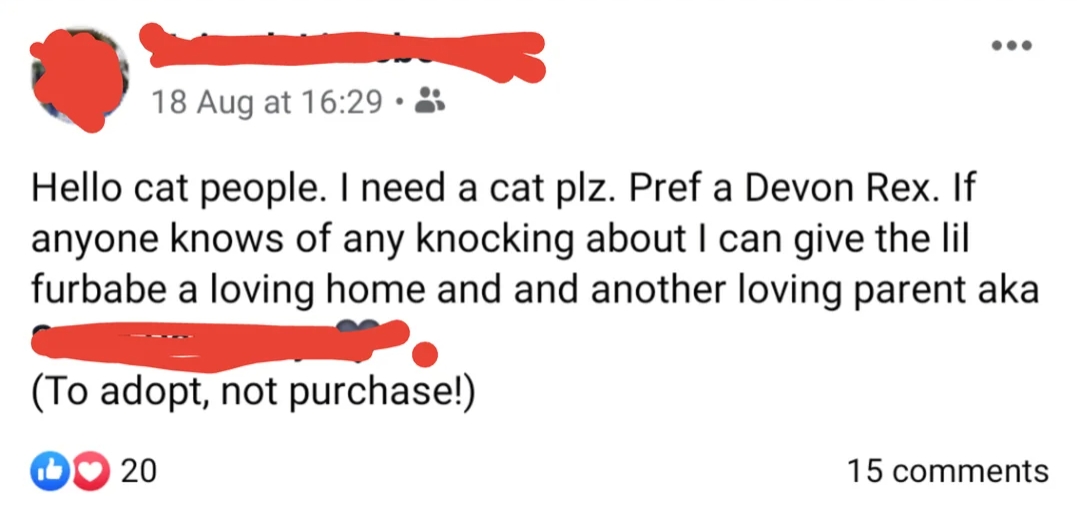
Let's head into the comments section and find out what other Redditors have to say regarding this "free" pet topic.
1. They need to understand adoption fees

2. Adoption fees do exist

Understanding the Psychology of 'Choosing Beggars'
The phenomenon of 'choosing beggars' often reflects deeper psychological patterns rooted in entitlement and unrealistic expectations. Dr. Susan David, an emotional agility expert, notes that "people who feel entitled may struggle with emotional flexibility, leading to conflicts in social interactions" on her website susandavid.com. This behavior may stem from a sense of deservingness influenced by upbringing or social environment. This demand for a free cat highlights not only a lack of understanding of the responsibilities associated with pet ownership but also an unwillingness to engage in the reciprocal nature of relationships.
3. You're not getting such a cat for free

4. There are so many cats who need a home

Social psychologists emphasize that entitlement can manifest in various contexts, particularly when individuals perceive themselves as unfairly disadvantaged. This perception can lead to demands that appear unreasonable to others. Research shows that when individuals feel deprived, they may react by seeking out compensatory behaviors, which can manifest as demands for free goods or services.
Encouraging a mindset shift towards recognizing the value of effort and contribution can help counteract these tendencies.
5. They are worth every penny

6. A short story shared by this Redditor
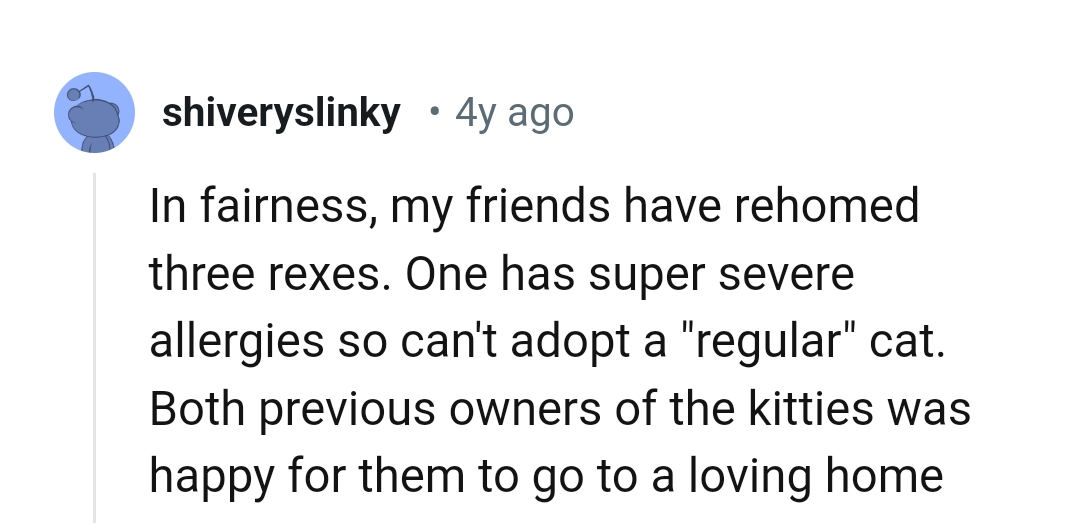
The Role of Communication in Addressing Entitlement
Addressing entitlement behaviors requires open communication about expectations and responsibilities. Experts recommend that individuals set clear boundaries regarding what they are willing to offer, which can help mitigate misunderstandings. According to research from the Journal of Social Issues, clear communication can prevent resentment and foster healthier relationships.
In this scenario, the person offering the cat could benefit from explaining the responsibilities associated with pet ownership, emphasizing the need for commitment and care.
7. They'll probably neglect their special food

8. The fifi of all things

Fostering a sense of responsibility is crucial in countering entitlement behaviors. Studies indicate that individuals who engage in community service or similar activities develop a stronger sense of empathy and understanding of others' needs. By encouraging participation in such activities, individuals can cultivate a greater appreciation for the efforts required to meet others' needs.
Promoting a culture of reciprocity, where contributions are valued and recognized, can significantly reduce entitlement behaviors.
9. Offering an adoption fee

10. It's not some old pots and pans

Building Empathy through Experiences
Empathy development is essential in addressing entitlement issues. Research shows that children who are exposed to diverse experiences, including volunteering and service projects, develop a deeper understanding of others' perspectives. This can lead to more balanced views on sharing and reciprocity.
Parents and caregivers can encourage empathetic behaviors by creating opportunities for children to engage in discussions about feelings and experiences, fostering a sense of connection to others.
11. They may have preferences

12. You'll likely see someone giving away free kittens
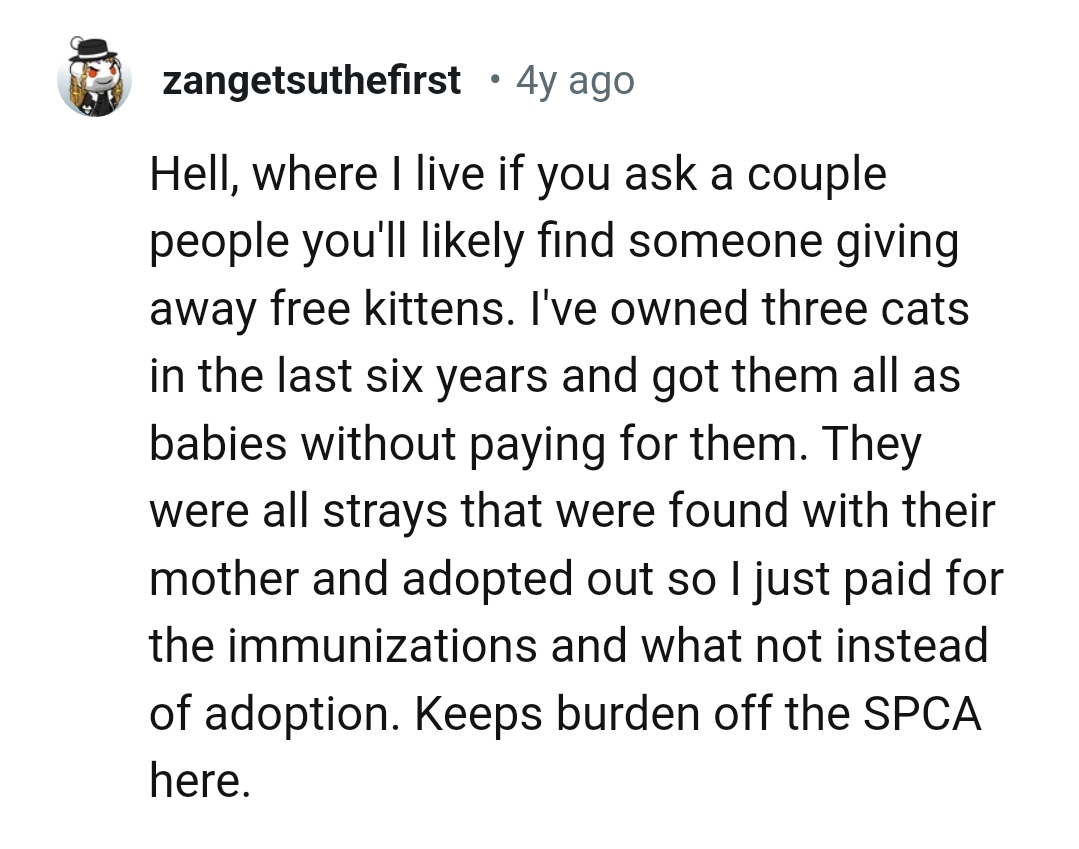
A pet's new owner is more likely to take their commitment to the pet seriously if you charge a small price or more for it. This doesn't mean that you can't get pets for free from certain shelters; just make sure you'll care for them as much.
Drop your thoughts about this post in the comments section below and share it with your loved ones to get their opinions as well.
13. They may not care much about it
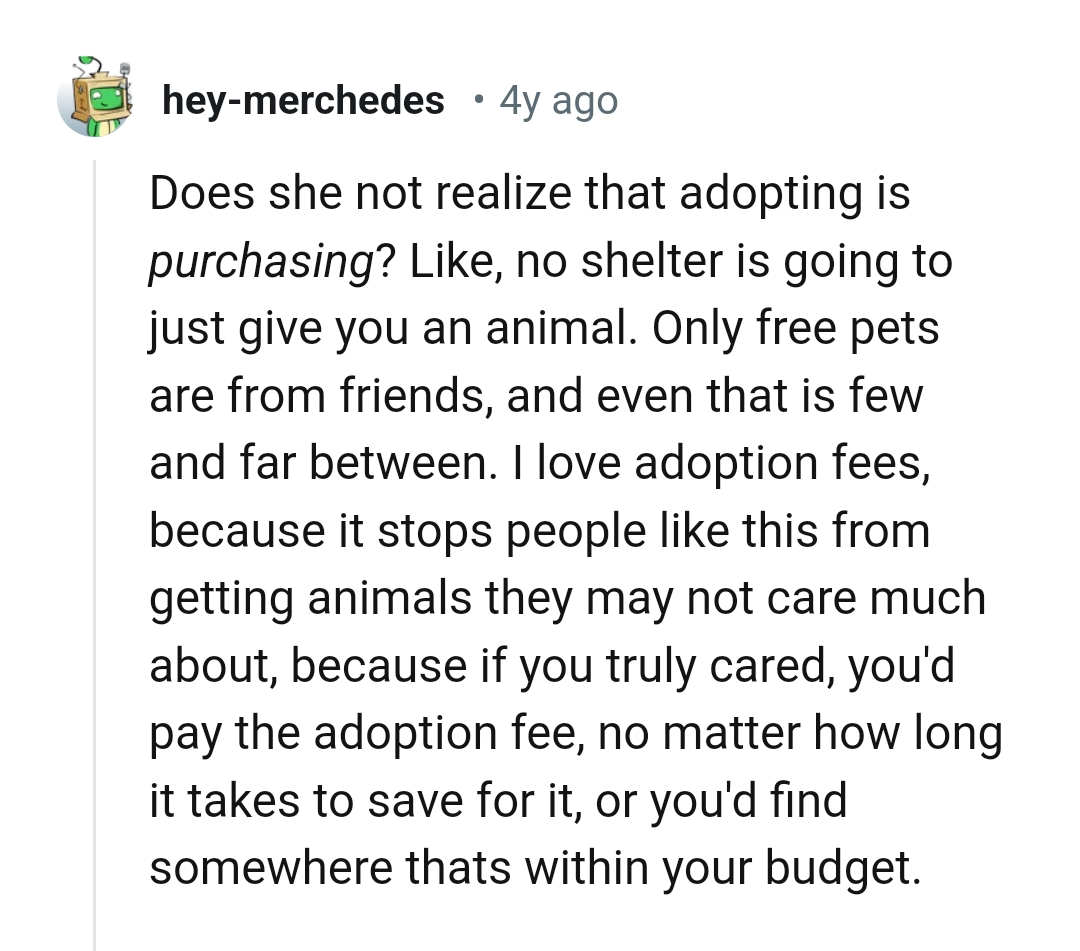
14. Go to Craigslist and get a free cat

15. Cases where adoption fees can be waived

16. They might be looking for a home for the cats

17. A breeder will sell it for more

18. This Redditor wants 17 of that type of cat

19. An extra cat should be lying somewhere around

20. There are no choosing beggars here
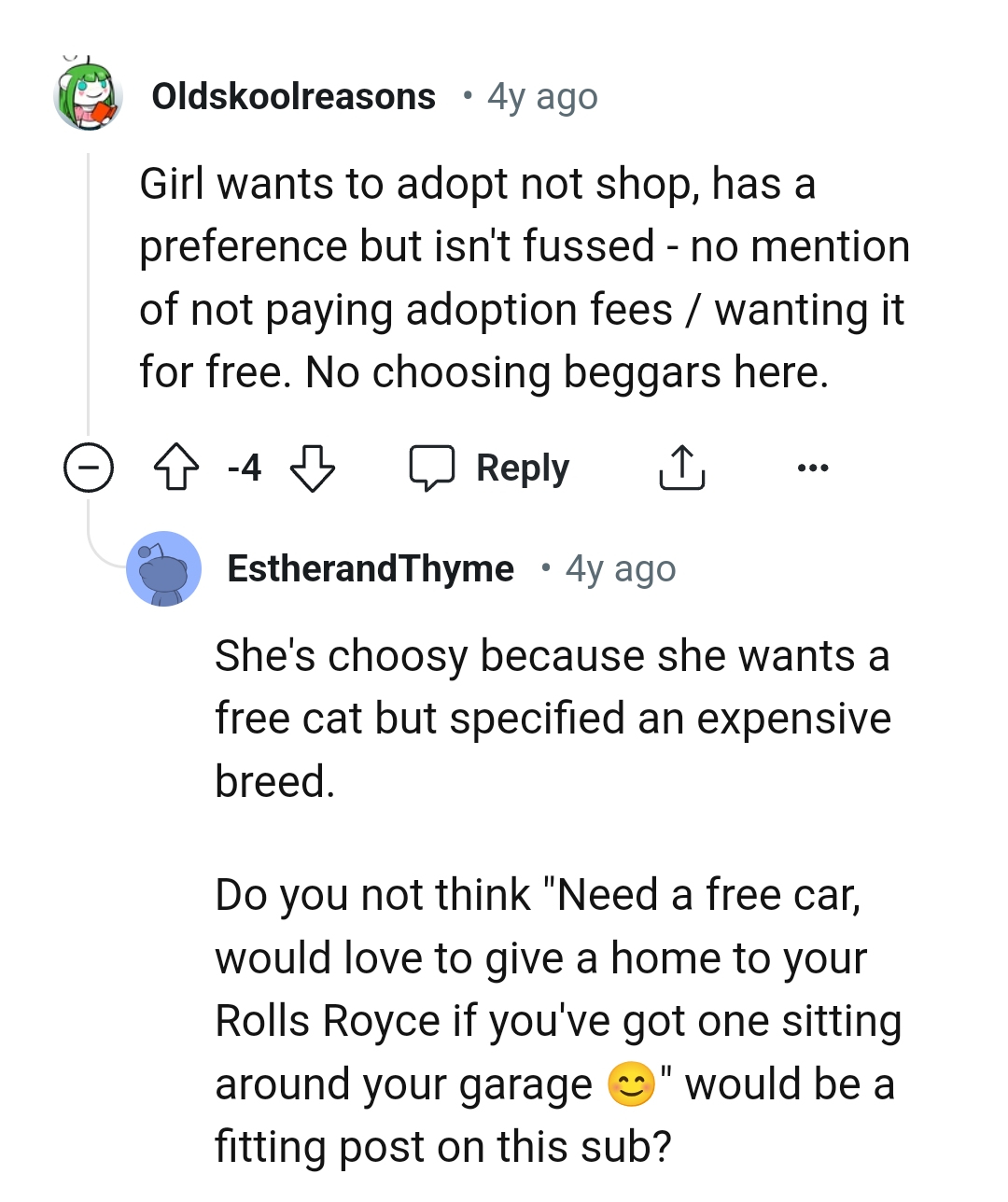
Psychological Analysis
The behavior demonstrated in this scenario reflects a common entitlement mindset that can develop in various social contexts. Encouraging open discussions about the responsibilities associated with relationships and fostering empathy can help individuals understand the importance of mutual respect and contribution.
Analysis generated by AI
Analysis & Alternative Approaches
In conclusion, addressing entitlement behaviors requires a multifaceted approach that emphasizes empathy and responsibility. Research indicates that fostering communication and creating opportunities for community engagement can significantly reduce entitlement tendencies, leading to more considerate and compassionate individuals.



